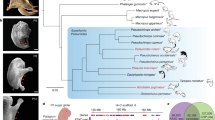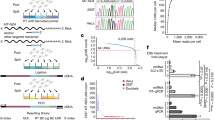Abstract
Recent studies have shown that gut microorganisms can modulate host lifespan and activities, including sleep quality and motor performance. However, the role of gut microbial genetic variation in regulating host phenotypes remains unclear. In this study, we investigated the links between gut microbial genetic variation and host phenotypes using Saccharomyces cerevisiae and Drosophila melanogaster as research models. Our result suggested a novel role for peroxisome-related genes in yeast in regulating host lifespan and activities by modulating gut oxidative stress. Specifically, we found that deficiency in catalase A (CTA1) in yeast reduced both the sleep duration and lifespan of fruit flies significantly. Furthermore, our research also expanded our understanding of the relationship between sleep and longevity. Using a large sample size and excluding individual genetic background differences, we found that lifespan is associated with sleep duration, but not sleep fragmentation or motor performance. Overall, our study provides novel insights into the role of gut microbial genetic variation in regulating host phenotypes and offers potential new avenues for improving health and longevity.
This is a preview of subscription content, access via your institution
Access options
Subscribe to this journal
We are sorry, but there is no personal subscription option available for your country.
Buy this article
- Purchase on Springer Link
- Instant access to full article PDF
Prices may be subject to local taxes which are calculated during checkout




Similar content being viewed by others
Data availability
All data are available in the main text and the supplementary materials.
References
Shapira M. Gut microbiotas and host evolution: scaling up symbiosis. Trends Ecol Evol. 2016;31:539–49.
Groussin M, Mazel F, Alm EJ. Co-evolution and Co-speciation of host-gut bacteria systems. Cell Host Microbe. 2020;28:12–22.
Qin Y, Havulinna AS, Liu Y, Jousilahti P, Ritchie SC, Tokolyi A, et al. Combined effects of host genetics and diet on human gut microbiota and incident disease in a single population cohort. Nat Genet. 2022;54:134–42.
Bonder MJ, Kurilshikov A, Tigchelaar EF, Mujagic Z, Imhann F, Vila AV, et al. The effect of host genetics on the gut microbiome. Nat Genet. 2016;48:1407–12.
Henry LP, Bruijning M, Forsberg SKG, Ayroles JF. The microbiome extends host evolutionary potential. Nat Commun. 2021;12:5141.
Zhang J, Li X, Olmedo M, Holdorf AD, Shang Y, Artal-Sanz M, et al. A delicate balance between bacterial iron and reactive oxygen species supports optimal C. elegans development. Cell Host Microbe. 2019;26:400–11.e3.
Han B, Sivaramakrishnan P, Lin CJ, Neve IAA, He J, Tay LWR, et al. Microbial genetic composition tunes host longevity. Cell. 2017;169:1249–62.e13.
Thompson RS, Vargas F, Dorrestein PC, Chichlowski M, Berg BM, Fleshner M. Dietary prebiotics alter novel microbial dependent fecal metabolites that improve sleep. Sci Rep. 2020;10:3848.
Acuna I, Cerdo T, Ruiz A, Torres-Espinola FJ, Lopez-Moreno A, Aguilera M, et al. Infant gut microbiota associated with fine motor skills. Nutrients. 2021;13:1673.
Sampson TR, Debelius JW, Thron T, Janssen S, Shastri GG, Ilhan ZE, et al. Gut microbiota regulate motor deficits and neuroinflammation in a model of Parkinson’s disease. Cell. 2016;167:1469–80.e12.
Martinez RC, Bedani R, Saad SM. Scientific evidence for health effects attributed to the consumption of probiotics and prebiotics: an update for current perspectives and future challenges. Br J Nutr. 2015;114:1993–2015.
Nath A, Bhattacharjee R, Nandi A, Sinha A, Kar S, Manoharan N, et al. Phage delivered CRISPR-Cas system to combat multidrug-resistant pathogens in gut microbiome. Biomed pharmacother. 2022;151:113122.
Madhusoodanan J. News feature: editing the microbiome. Proc Natl Acad Sci USA. 2020;117:3345–8.
Vo PLH, Ronda C, Klompe SE, Chen EE, Acree C, Wang HH, et al. CRISPR RNA-guided integrases for high-efficiency, multiplexed bacterial genome engineering. Nat Biotechnol. 2021;39:480–9.
Ronda C, Chen SP, Cabral V, Yaung SJ, Wang HH. Metagenomic engineering of the mammalian gut microbiome in situ. Nat Methods. 2019;16:167–70.
Yang J, Pu J, Lu S, Bai X, Wu Y, Jin D, et al. Species-level analysis of human gut microbiota with metataxonomics. Front Microbiol. 2020;11:2029.
Qin J, Li R, Raes J, Arumugam M, Burgdorf KS, Manichanh C, et al. A human gut microbial gene catalogue established by metagenomic sequencing. Nature. 2010;464:59–65.
Lam KN, Spanogiannopoulos P, Soto-Perez P, Alexander M, Nalley MJ, Bisanz JE, et al. Phage-delivered CRISPR-Cas9 for strain-specific depletion and genomic deletions in the gut microbiome. Cell Rep. 2021;37:109930.
Kim B, Kanai MI, Oh Y, Kyung M, Kim EK, Jang IH, et al. Response of the microbiome-gut-brain axis in Drosophila to amino acid deficit. Nature. 2021;593:570–4.
Vaccaro A, Kaplan Dor Y, Nambara K, Pollina EA, Lin C, Greenberg ME, et al. Sleep loss can cause death through accumulation of reactive oxygen species in the gut. Cell. 2020;181:1307–28.e15.
Hoang D, Kopp A, Chandler JA. Interactions between Drosophila and its natural yeast symbionts-Is Saccharomyces cerevisiae a good model for studying the fly-yeast relationship? PeerJ. 2015;3:e1116.
Schrader M, Fahimi HD. Peroxisomes and oxidative stress. Biochim Biophys Acta. 2006;1763:1755–66.
Badal VD, Vaccariello ED, Murray ER, Yu KE, Knight R, Jeste DV, et al. The gut microbiome, aging, and longevity: a systematic review. Nutrients. 2020;12:3759.
Ghosh TS, Shanahan F, O’Toole PW. The gut microbiome as a modulator of healthy ageing. Nat Rev Gastroenterol Hepatol. 2022;19:565–84.
Anderson JR, Carroll I, Azcarate-Peril MA, Rochette AD, Heinberg LJ, Peat C, et al. A preliminary examination of gut microbiota, sleep, and cognitive flexibility in healthy older adults. Sleep Med. 2017;38:104–7.
Langsetmo L, Johnson A, Demmer RT, Fino N, Orwoll ES, Ensrud KE, et al. The association between objectively measured physical activity and the gut microbiome among older community dwelling men. J Nutr Health Aging. 2019;23:538–46.
Lim MY, Hong S, Kim JH, Nam YD. Association between gut microbiome and frailty in the older adult population in Korea. J Gerontol A Biol Sci Med Sci. 2021;76:1362–8.
Ferdinandusse S, Denis S, Faust PL, Wanders RJ. Bile acids: the role of peroxisomes. J Lipid Res. 2009;50:2139–47.
Islinger M, Voelkl A, Fahimi HD, Schrader M. The peroxisome: an update on mysteries 2.0. Histochem Cell Biol. 2018;150:443–71.
Neish AS. Redox signaling mediated by the gut microbiota. Free Radic Res. 2013;47:950–7.
Neish AS, Jones RM. Redox signaling mediates symbiosis between the gut microbiota and the intestine. Gut Microbes. 2014;5:250–3.
Silva YP, Bernardi A, Frozza RL. The role of short-chain fatty acids from gut microbiota in gut-brain communication. Front endocrinol. 2020;11:25.
Collins SL, Stine JG, Bisanz JE, Okafor CD, Patterson AD. Bile acids and the gut microbiota: metabolic interactions and impacts on disease. Nat Rev Microbiol. 2023;21:236–47.
Suk RGKT. Therapeutic potential of human microbiome-based short-chain fatty acids and bile acids in liver disease. Livers. 2022;2:139-45.
Bushey D, Hughes KA, Tononi G. Cirelli C. sleep, aging, and lifespan in Drosophila. BMC Neurosci. 2010;11:56.
Foley DJ. An epidemiological perspective on one tale of a two-tailed hypothesis. Sleep Med Rev. 2004;8:155–7. discussion 75-6
Bliwise DL, Young TB. The parable of parabola: what the U-shaped curve can and cannot tell us about sleep. Sleep. 2007;30:1614–5.
Stenholm S, Head J, Kivimaki M, Magnusson Hanson LL, Pentti J, Rod NH, et al. Sleep duration and sleep disturbances as predictors of healthy and chronic disease-free life expectancy between ages 50 and 75: a pooled analysis of three cohorts. J Gerontol A Biol Sci Med Sci. 2019;74:204–10.
Metaxakis A, Tain LS, Gronke S, Hendrich O, Hinze Y, Birras U, et al. Lowered insulin signalling ameliorates age-related sleep fragmentation in Drosophila. PLoS Biol. 2014;12:e1001824.
Koh K, Evans JM, Hendricks JC, Sehgal A. A Drosophila model for age-associated changes in sleep:wake cycles. Proc Natl Acad Sci USA. 2006;103:13843–7.
Wilson KA, Beck JN, Nelson CS, Hilsabeck TA, Promislow D, Brem RB, et al. GWAS for lifespan and decline in climbing ability in flies upon dietary restriction reveal decima as a mediator of insulin-like peptide production. Curr Biol. 2020;30:2749–60.e3.
Thillainadesan J, Scott IA, Le Couteur DG. Frailty, a multisystem ageing syndrome. Age Ageing. 2020;49:758–63.
Tso W, Chan M, Ho FK, Rao N, Li AM, Chan KL, et al. Early sleep deprivation and attention-deficit/hyperactivity disorder. Pediatr Res. 2019;85:449–55.
Skoneczny M, Chelstowska A, Rytka J. Study of the coinduction by fatty acids of catalase A and acyl-CoA oxidase in standard and mutant Saccharomyces cerevisiae strains. Eur J Biochem. 1988;174:297–302.
Khan I, Samson SE, Grover AK. Antioxidant supplements and gastrointestinal diseases: a critical appraisal. Med Princ Pract. 2017;26:201–17.
Liu X, Liu Z, Wu Z, Ren J, Fan Y, Sun L, et al. Resurrection of endogenous retroviruses during aging reinforces senescence. Cell. 2023;186:287–304.e26.
Koyle ML, Veloz M, Judd AM, Wong AC, Newell PD, Douglas AE, et al. Rearing the fruit fly Drosophila melanogaster under axenic and gnotobiotic conditions. J Vis Exp. 2016;113:e54219.
Liu C, Haynes PR, Donelson NC, Aharon S, Griffith LC. Sleep in populations of drosophila melanogaster. eNeuro. 2015;2:1-17.
Chen EY, Tan CM, Kou Y, Duan Q, Wang Z, Meirelles GV, et al. Enrichr: interactive and collaborative HTML5 gene list enrichment analysis tool. BMC Bioinform. 2013;14:128.
Kuleshov MV, Jones MR, Rouillard AD, Fernandez NF, Duan Q, Wang Z, et al. Enrichr: a comprehensive gene set enrichment analysis web server 2016 update. Nucleic Acids Res. 2016;44:W90–7.
Acknowledgements
We would like to express our gratitude to Dr. Qiang Zhang and Fang Zhang for the helpful discussions.This work was supported by the National Natural Science Foundation of China (81701390, 81902040), Natural Science Foundation of Jiangsu Province (BK20170250), Xuzhou key research and development plan project (KC19057, KC22096) and the Jiangsu University Students Innovation and Entrepreneurship Training Program (202010313026Z).
Author information
Authors and Affiliations
Contributions
YL, SX, LW, and ZZ designed research; YL, LW, HS, HW, ZF, YH, JJ, DJ, and MD performed research; SX contributed to analytical workflows; SX, LW, and HS analyzed the data; ZZ and SX wrote the paper; ZZ contributed to funding.
Corresponding authors
Ethics declarations
Competing interests
The authors declare no competing interests.
Additional information
Publisher’s note Springer Nature remains neutral with regard to jurisdictional claims in published maps and institutional affiliations.
Rights and permissions
Springer Nature or its licensor (e.g. a society or other partner) holds exclusive rights to this article under a publishing agreement with the author(s) or other rightsholder(s); author self-archiving of the accepted manuscript version of this article is solely governed by the terms of such publishing agreement and applicable law.
About this article
Cite this article
Li, Y., Xu, S., Wang, L. et al. Gut microbial genetic variation modulates host lifespan, sleep, and motor performance. ISME J 17, 1733–1740 (2023). https://doi.org/10.1038/s41396-023-01478-x
Received:
Revised:
Accepted:
Published:
Issue Date:
DOI: https://doi.org/10.1038/s41396-023-01478-x



